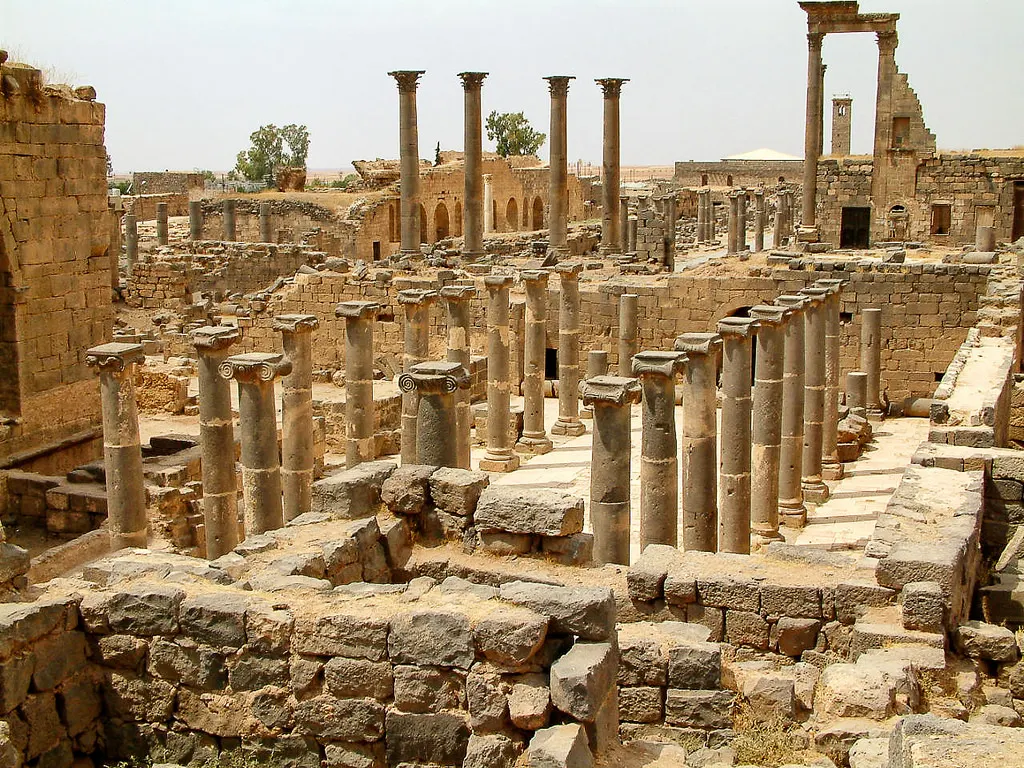
of Syrian heritage sites that have been damaged in war
[Credit: Arian Zwegers/WikiCommons]
“The destructions sustained by Bosra represent a further escalation in the horror of war and must be stopped at once to allow the concerned parties to consolidate the agreement reached on the ground to preserve the irreplaceable heritage of Bosra,” UNESCO Director-General Irina Bokova said of the site containing Roman, Byzantine and Muslim ruins, including a magnificent 2nd century Roman theatre.
Further deterioration is feared due to severe damage to the western courtyard adjacent to the theatre and to parts of the Ayyubid citadel surrounding it.

[Credit: alvis2603/Flickr]
The theatre, exceptional due to its architecture and state of conservation, was most probably built under Trajan, who ruled the Roman Empire from 98 C.E. to 177 C.E. Between 481 and 1251, it became part of the fortifications of a powerful citadel guarding the road to Damascus.
“The protection of cultural sites is part and parcel of the protection of human lives as it is essential for the restoration of peace in Syria,” Ms. Bokova said.
“The Roman theatre of Bosra embodies the rich diversity of the identity of the people of Syria and I call on culture professionals worldwide, and particularly on the art market, to be extremely vigilant so as to fight against the traffic in artefacts from Bosra.”
Ms. Bokova has frequently condemned the destruction of archaeological and cultural sites in the fighting in Syria and Iraq. Extremists will “never be able to erase history,” she declared in October after the Islamic State in Iraq and the Levant (ISIL) destroyed the Arch of Triumph in Palmyra, another major Syrian World Heritage site.
Bosra, once the capital of the Roman province of Arabia and an important stopover on the ancient caravan route to Mecca, was inscribed on UNESCO’s World Heritage List in 1980.
“The key surviving monuments of Bosra reflect the Outstanding Universal Value of the site,” the agency said then.
Source: UN News Centre [December 28, 2015]